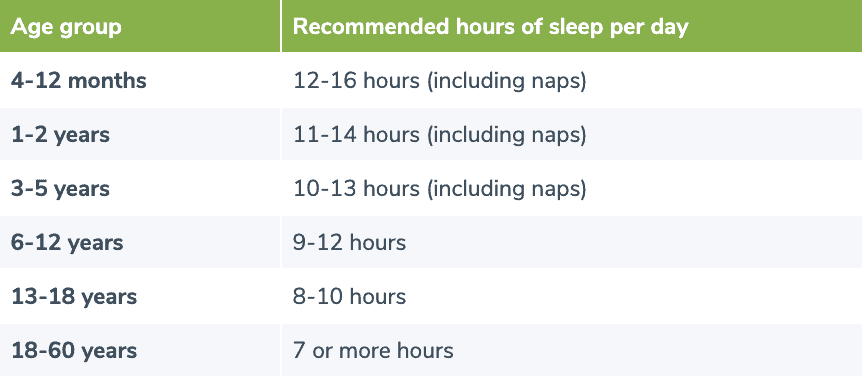Although sleep is usually considered one of the pillars of optimal health, approximately 35% of adults sleep less than the recommended seven hours per night according to the CDC (Centers for Disease Control and Prevention).
Sleep deprivation can be associated with chronic health conditions, such as cardiovascular disease, diabetes, asthma, cancer, and chronic kidney disease. It also can be linked to depression.
Sleep is essential for a healthy human body because it’s during this time that the body is able to regenerate and repair itself. Sufficient amount of sleep also aids in enhancing the immune system’s defenses and is important in memory consolidation and learning.
According to the American Academy of Sleep Medicine and the Sleep Research Society, each age group have different recommended hours of sleep per day.


Sleep deprivation can occur as a result of several factors, including poor sleep routines and health conditions such as insomnia and sleep apnea.
Research has found that the duration of sleep is negatively impacted by shifts in sleep patterns, such as shift work or jet lag.
Since irregular sleep and wake times can disrupt your circadian rhythm, aim to sleep and wake up at the same time every day as close as possible.
Also, engaging in regular physical activity for over four weeks has been shown to improve sleep in both healthy individuals and individuals with sleep disorders.

